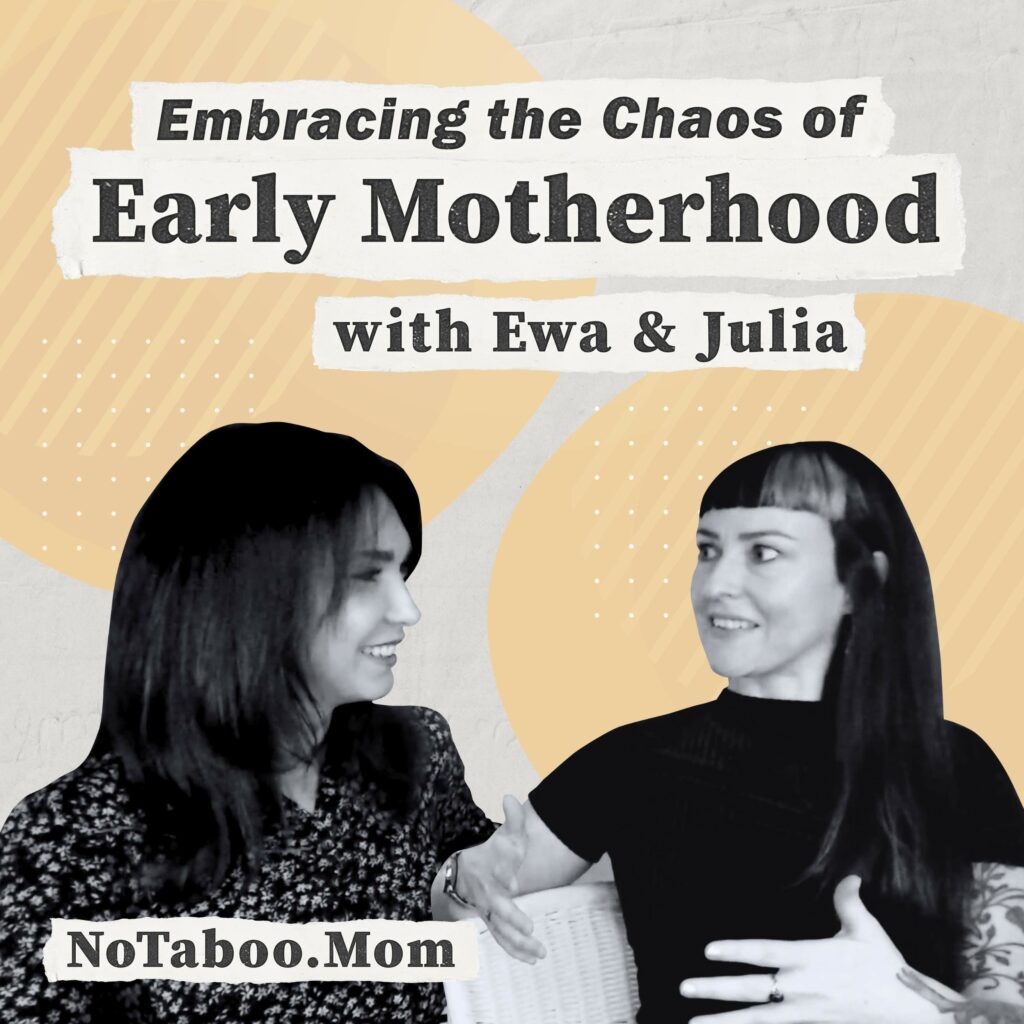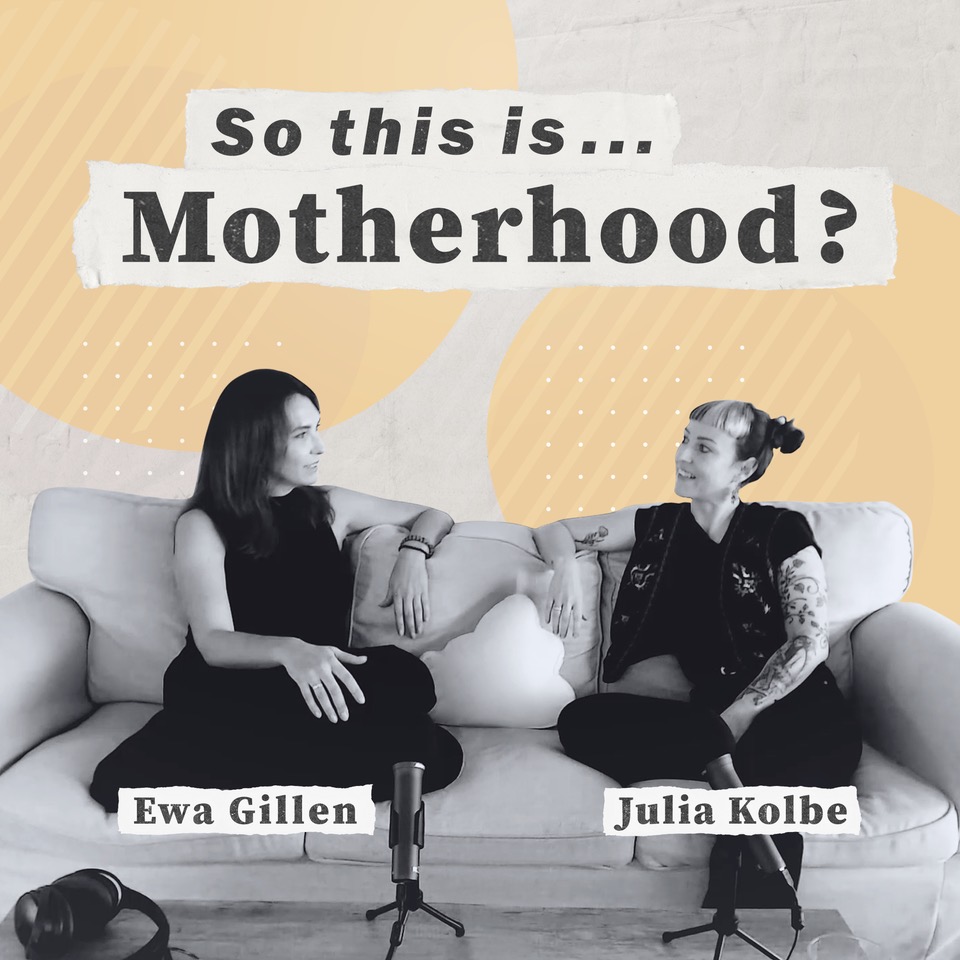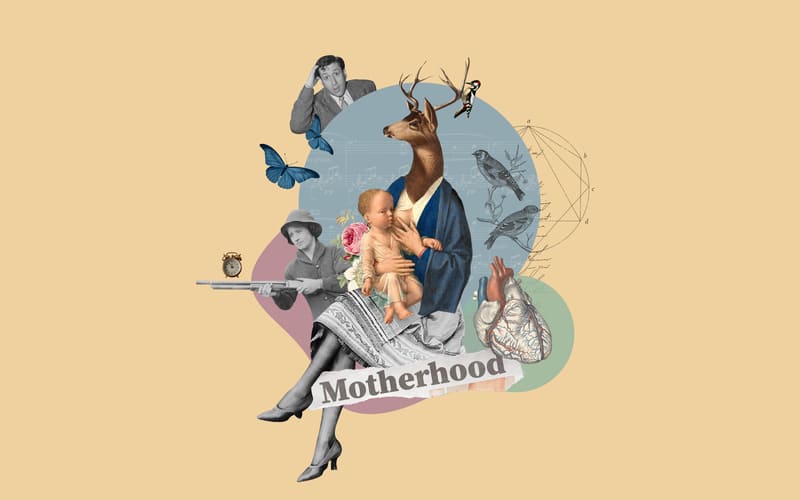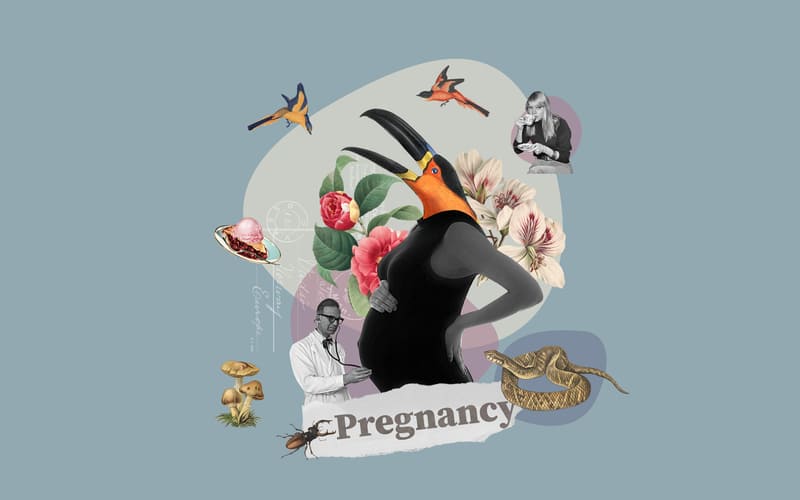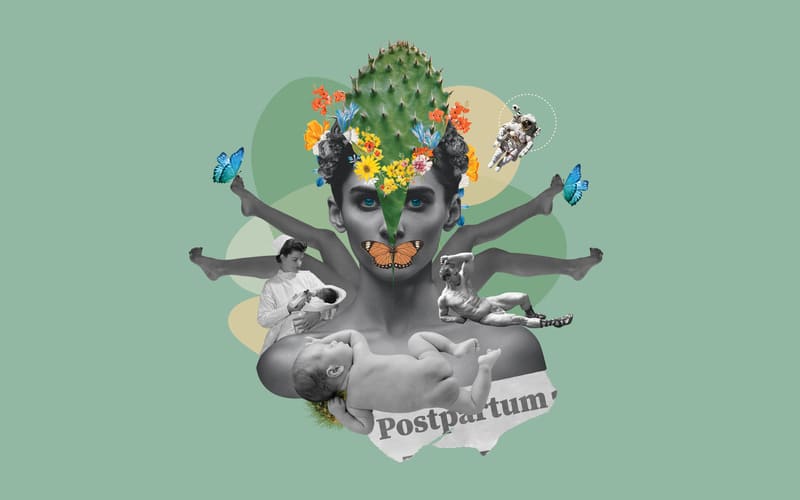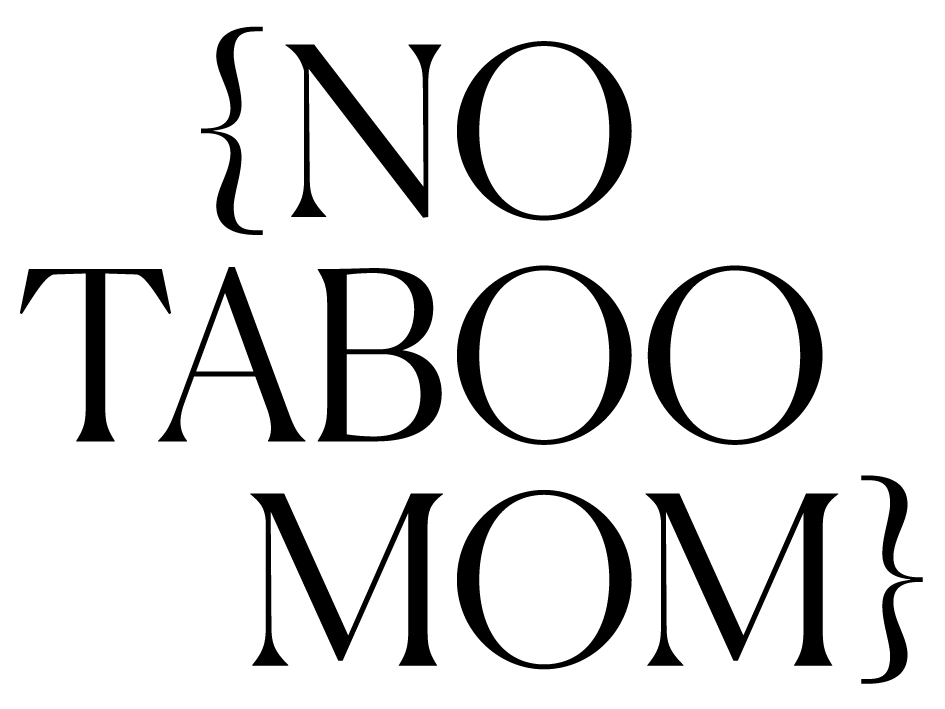Ewa:
Hello and welcome to the No Taboo Mom podcast. My name is Ewa.
Julia:
My name is Julia. Thank you for joining us today.
Ewa:
The subject of today is Embracing the Chaos: The Struggles of Early Motherhood. We actually tried to talk about it a few times, and this subject is huge because obviously, it covers everything, from postpartum to today. And because we‘re moms of toddlers, we decided that we‘re not going to go too deep into postpartum today. That‘s a completely separate subject. So we decided we’re going to talk about what was, how it felt but literally we’re going to focus on struggles of early motherhood from perspective today. Kind of looking back and looking forward, and seeing where we can go with it.
Julia:
So what was the most surprising thing in motherhood for you?
Ewa:
The most surprising thing? And I talk about it very openly as always. It‘s that you don‘t know what you don‘t know. For me, it was kind of like: even though I knew it was going to be different, and I knew life would be upside down, and I knew the priorities would shift and I was super, super surprised that it would completely change our dynamics. Ben and I have been together for 16 years now. and we had our way of doing things, our workflow, how we did things around the house, how we met our friends. Just our whole setup. And all of a sudden it was just so different that I think it took me almost 4 years. Now my daughter is 4.5 now and it took me definitely four years to accept the change. But it was so surprising that it just kind of changed everything… Every aspect of your life is seriously changed I think it was eye-opening. Because I felt like we were in this world surrounded by friends who already had families, but I was so unaware how different their life was from mine. I remember… this is the funny part… Ben and I used to say: When we have children, they‘ll adapt to our life! And now I think: Wow. We were so stupid. So in a way, I never thought anything in life could surprise me to that extent. but family life did. That was the most surprising, aha moment: I know nothing.
Julia:
That‘s also what I think you can‘t imagine at all, how much energy you have to put into this just to get you and your family and your kid and your husband out to a birthday party or something. You know? When I look back I remember having friends with kids before I did. They would come over, and I just took it for granted: It was like: “oh OK they are coming over” But now when you look into it, how much you actually have to create around to get everybody ready… get to this day, get ready get finished, to think about a bottle of water, clothes to change, whatever your husband needs, or you need… And then just to get out of the house to get actually to the birthday party. I have a totally different perspective now. So I even have more respect and I still struggle with it all. It’s still chaos just to get to the same party, like everybody else.
Ewa:
My friends were actually really good at managing parenthood and partying with us before we had children. and they were even showing up at the parties… I remember one friend she was pregnant with her second child, already had one… I didn’t really understand how awesome she was. You know? That she has some superpowers! Because she was showing up. And I know today, she was literally destroying her whole kind of arrangement of everyday life. Today I sometimes think: Oh, we could go see those friends, but then I realize we‘ll be back at 11:00 pm, and that‘s too much for my daughter. And this is going to destroy our dynamics, so on Monday… when the preschool starts etc. You know how much sacrifice it is… to just set up those… exactly as you said: it is not only packing, but what it actually does to you later. And in general for all our listeners who aren‘t moms yet: You cannot prepare for this… It‘s like a tsunami. It happens to you. It sweeps over everything. Not only in a negative way, but in both ways. Parenthood is the best and worst thing that‘s ever happened to me. Because in a way I experienced love that I’ve never thought existed, on the other, I experienced this shift of everything. I wasn’t prepared for this! And I don’t think I would be more prepared when I was 20, 25, 30… I was 36 when I got Milou. But in general, it’s just crazy…
Julia:
But that’s what you said, you know, you have good things and the bad things, and struggles and stuff. But I realize every year, I grow more and more and more… When I look back at last year, to today, I see how much I‘ve grown… in comparison to 2 years ago, 3 years ago, 4 years ago. I grow with my kids, and all the challenges of the daily life. Also like in our example, going to a birthday party and just getting everything done and finished. I don‘t know if it‘s chaos or just that everyone experiences it like this. If you get people together, with different personalities: the small ones and big ones, then I think it’s normal to struggle. But from the outside it always looks so easy, but it’s not!
Ewa:
Yeah…
Julia:
I think you have to go into the perspective again to just look from the top somehow. Okay, you do great. How you do it, you do great. Because at the end, you have everything you needed for your trip to the birthday party, whatever, and you still did it. You know, and every year I do it even better, because I learn from certain situations, and you just get better and better. And even also your kids get better because they grow older, and it‘s easier.
Ewa:
Yeah.
Julia:
So you grow with the chaos.
Ewa:
Yeah, that‘s true. And you grow with the challenges, as you say, right? So something that was challenging even though the challenges change, right? From obviously, you have a small baby, as you said, you pack half of the house with you, or you need to even take clothes for you because if you‘re breastfeeding, most likely you‘re going to get, you know, vomit on you and all the other stuff…
Julia:
and the dripping…
Ewa:
So as you said, you have to think about your husband, your children, yourself, and so on. Then with every year, you drop those suitcases and then you only have one bag, and so on, right? So this changes. But then you have to remember that you need to take enough toys or something to eat. So everything changes, everything flows. It‘s dynamic. But also, I don‘t think I could handle the challenges of today with a toddler two years ago. I had to get to this point, as you say, with my child, and she also had to learn how to cope with us. So it‘s almost like we, you know, together as parents and children are going exactly the same path. Sometimes we are faster, sometimes they are faster, and we have to catch up. And they‘re catching up. And I think this is it. I don‘t think this will ever change. I think this will always be a flow.
Julia:
And even sometimes when you think we do it a certain way, you struggle. And then your kid is just showing you, actually: Oh, you can make it just easier if you like. I‘ll show you, okay? So just let them grab their own backpack, put stuff inside, and the toys, you know, and then just, yeah, make them responsible for that. Somehow, you just grow with them. Yes, and they do as well. Because now my daughter is six years old, she sees when I struggle and she decides: Okay, can I help you with something?
Ewa:
Oh, that‘s amazing.
Julia:
You know? And so we are both in the chaos, but getting there together. And yes, of course, they are older now, but it makes it easier. But they come with different problems you have to solve, and it just shifts to some other situations or how you manage things.
Ewa:
I think also one of those biggest lessons of motherhood was that not everything can be done in one day. So for me it was a huge challenge, because I was the person who loves tick boxes. And if I couldn’t get the tick box, I was just losing it at work, in my personal life, whatever. And you know, at the very beginning, when you just try to—I don’t know—even do your nails, or clean something, or whatever you had to do, it was in those chunks of tiny, tiny times. And I think one of the biggest challenges today, even though it got obviously better—you know, my daughter sleeps better, still not perfect—but I‘ve got my evening. If I had time, I would watch something. You know those moments when you have that evening free, and then, I swear to God, this is what I do, this is a typical Instagram picture: when I do my nails, I‘ve got a mask on my face, I‘m sipping my wine, and then I‘m watching—I don’t know—Bridgerton. And I‘m just kind of doing sit-ups and push-ups at the same time, because I have super limited time. And I think this is personally probably my biggest struggle. The price I pay for motherhood, I think, is to literally say goodbye to your own time. I know it‘s manageable. I know you can do it. And of course, you try to arrange with your partner the best you can so that he has his time, you‘ve got your time, that you can go to the gym, that you can go out with your friends. And of course, everything is doable. But as a non-mom, get ready for cuts beyond your imagination. Meaning it will change not only your schedule, but it will change the access to the most awesome things you like, that you appreciate, that make you feel good. It will cut the time with your partner. The quality time is never going to be the same. You have to rearrange every aspect of your life. Everything that you thought and took for granted will change. Some of it will change for better, but many things are going to change—I‘m not going to call it worse—just different. It‘s a different dynamic. It‘s a completely not-self-needed orientation. You know? What I mean is the shift around like, your life is not about you anymore. Or not about you and your partner. It‘s about your children.
Julia:
Exactly. It‘s not your frame anymore. It‘s about the frame, you know, with you and your kids.
Ewa:
Yeah.
Julia:
And also, you are not spontaneous anymore. So this is what I experienced. I was very flexible and spontaneous, just catching up here and there in the middle of the night, it didn‘t matter. And now, it just can change from one day to another. Your kid is fine. The other day everything is fine. You‘re looking forward to the wedding or something special. And in the morning, you touch your child‘s head, and it‘s hot.
Ewa:
Oh, classic.
Julia:
And of course, you know, you stay with your kid at home and you will give your kid everything it needs to just get better. But on the inside, I‘m still sad. You know? Because I really wanted to go. I wanted to see my friends. I wanted to share the day with them. You know, something special. And this is gone. You know that you just have to look after your kid, and you just can‘t go whenever you like to. I think this was the hardest part.
Ewa:
Yeah.
Julia:
Just to miss out on some special things with your friends or your family because you have to look after your sick child. Which, of course, you do. But still, you can feel sad at the same time. And sometimes even a little bit angry. Because it‘s just like, I really wanted to go. You know? I was really looking forward to it. And I remember, in winter season, then it‘s just like every weekend you can‘t go. Because when you have two kids, then the other one has something. Next weekend it‘s you. And the other weekend it‘s the other kid. And it just goes on. And then you look back and you just think, okay, I haven‘t seen my friends for like 8 weeks.
Ewa:
I know what you are saying.
Julia:
You even feel lonely sometimes. So I think this was my biggest—or is still—one of my biggest challenges. Because I like to bring my kids to parties as well, because they are easy-going, it‘s nice with them. But yeah, when they have a different desire, or a different, you know, needs, then it‘s not about me anymore.
Ewa:
Yeah, giving up the needs—I think this is one of the biggest challenges. To find yourself at ease with the fact that your needs are no longer the priority in your life.
Julia:
I don‘t even have time to look after my needs.
Ewa:
Exactly! I don‘t eat well sometimes, I forget to drink, but my kids have everything, it‘s like I‘m looking after them all the time. They have food, they have drinks, they are comfy. And at the end of the day I‘m like: Hey, um, so what did you do for yourself? Just the basic things, not something fancy. Basic things, you know?
Ewa:
Yeah, I actually asked this question to my friend Ola. And then I said: Hey, tomorrow we’re going to talk about embracing the chaos of motherhood. And I just kind of asked a random question to the people at the table. I’m like, anyone have thoughts about it? And Ola said: Feeling guilty is the most challenging thing for me as a mom. She meant that no matter what she does—if she spends too much time with the kid (which barely happens)—but if she works too long, she feels guilty for not being with the child. If she spends some more time with the child, then she feels guilty that she is not working properly. There’s always something that has to go. Which is very connected to the thought of needs. And I thought about it too, and I was like, Oh wow, this is so true. I very often just feel guilty. I didn’t spend enough time. I didn’t cook enough healthy food. I didn’t—was it enough quality time? Was it enough fun? Oh, I forgot to call my mom. There’s always something. And I don’t know why women—and so many women—tend to put themselves and their needs, as you just described, at the end of the chain. And I don’t understand that. I don’t know yet how to shift it. I know there are books. I’ve looked into so many different sources of information, and blah blah blah—there are some ways. And sometimes I meditate. I’m like: What do you need? What do you need? And the list is so big. But it’s just—organizing even going to the gym, it’s just crazy. It’s really crazy sometimes. And I know it does good. When I follow that kind of flow of: Hey, it’s fine to listen to yourself, listen to your heart. What do you need? What do you want? And then go with it. If I do it at least once or twice a week, I feel much better. My family is better. Everyone’s more happy. But it costs me so much sometimes, because there are so many things on my list. And I don’t know how to master it. So I think it’s one of the biggest challenges. So how do I regain the balance with time? Obviously, nobody’s expecting perfection. I know some women manage it much, much better. But I also know many women struggle. Do you have any tips? Or do you think it’s possible to regain balance quicker in early motherhood?
Julia:
When I think back, sometimes you get time offered from your partner, just spontaneously like: Oh come on, I’ll take the kids, and you can go for a run, or the gym, or take a shower, or do whatever you want for your me-time. And then when I got the time, just like that, I was like, I don’t really feel it right now. I don’t feel like running. I don’t feel like meditating right now. It was just like—out of a sudden—I had to switch into a different mood and mindset, and I need time for that. And I like to have a structure, kind of. Everything is a little bit set up—yeah, to get things done. So I obviously got the time from my partner, but not at the time I actually needed it. And I think that’s the struggle—because it’s his need, it’s the kid’s need, and then it’s mine. And to get all those things in order, it just kind of doesn’t work for me. Sometimes it does. We have good days, when there’s a good flow and everything’s working out, and everything is fine. And then we have weeks when we struggle, and we’re just like: Help, I’m drowning… But he’s drowning too. And it’s like: Okay so how do we manage this? And I think one good thing is to get the structure out of your head and just take it easier. But that’s easier said than done—just take it easy, take what you get and make the best out of it. But I couldn’t do that very well. It wasn’t my kind of thing. Like: Here, you have time—go make something out of it. That didn’t work for me. But maybe it works for someone else.
Ewa:
I agree. I know what you’re saying. I also can’t just—it’s almost like a “push the button” and now it’s like, Oh, there’s some spontaneous time. Exactly. It doesn’t work for me either. I think what worked better for me was to look at my life as a work project. Saying things like, we had a couple of those successful conversations with my partner, where we said: Okay, let’s sit down. Let’s see what’s stopping us from doing more sports. We both used to go to the gym together. I really miss that time. So what can we do? How can we arrange our daily schedule? What responsibilities can we give to someone else? Do we need someone to help with cleaning? Do we need more money for that? If you look at it like a project, then it’s easier. But it’s also really hard to separate the emotions from it. Because everyone’s trying to get a chunk of time for themselves—and that’s normal. We all have needs. My partner has needs. My child, as you said, has needs.
Julia:
I have a tip!
Ewa:
What is it?
Julia:
I just talked to my friends—all mothers—and we agreed: We’re going to find a date once a month. Just once a month. Because, you know, family, daily life, work—this is our day. If somebody gets sick, okay. But this is our day every month. This is our date. We’re going to get together. So we try this, and I’m really looking forward just to catching up. And it does not matter… Of course I have to leave the house. Sometimes I feel like: Oh, I actually want to stay home because I’m exhausted, but it’s always nice when we catch up anyway.
Ewa:
Yeah.
Julia:
So really don’t just make plans with your husband or your partner—the dad of your kids, or whatever. Make plans with your friends. Just one friend. Like a date. For example, every Thursday, I catch up with my friend Julie to go to Pilates. And I would never go if she’s not going because I’m too lazy. But the two of us? We’re the perfect match for our Thursday date. So yeah, don’t look only inside your family. Look around. Set dates with certain people.
Ewa:
I think you’re absolutely right. Meeting with your friends, especially with the girls… just so you can exchange, talk honestly—obviously, if you have a person you can talk honestly to—it’s super important to talk about how you feel, where you are in life at the moment. And also it is super important to remember that every family situation is different. Which brings us back to our whole point: There’s no recipe. Once again—there’s no recipe. No matter what you do. That’s why we always ask people: How do you feel? And some of the themes are aligned: the needs, the guilt, the feeling that it’s the best and the worst thing. It is all very similar… We all have our differences, but it really comes to one conclusion: There is no framework to get through this madness. Embracing the chaos—that’s why we thought that’s the only way. Try to accept it as much as you can. Talk to your partner. Try to find consensus. Make sure everyone’s needs are covered. And don’t ever, ever forget yourself.
Julia:
What actually helps me as well—I just remembered… is to be here right now.
Ewa:
Ohhh, good one!
Julia:
I know, it’s the hard part. I used to teach things like this back in the hospital. And I’m the worst at it! Be here, right now, where you are. Sometimes when I play with my kids, I see the chaos. I know I still have to make a phone call, do this, do that. It’s already past six in the evening. I know I can’t even make the call anymore. I don’t need to write the message anymore. People are no longer at work. And then I just feel it—I calm down. I relax a little bit… and I try to let go of what I can’t change in that moment. That brings me closer to this point: I’m here with my kids right now. And that’s okay. Just tick things out, instead of ticking them in, you know?
Ewa:
That’s a good one. Maybe something like that—mindfulness?
Julia:
Yeah, mindfulness. Exactly.
Ewa:
And meditation helps a lot with that—just to practice it. I think it’s everywhere.
Julia:
You can even do it while you’re playing with your kids.
Ewa:
That’s true.
Julia:
Even just thinking about it brings you closer to that mindset. Like: Ah okay, yeah, I wanted to remember—I can’t change this right now. I can do it tomorrow. And I’m here, right now.
Ewa:
That helps. I’ve noticed that when I decide: Now I’m only going to play with my daughter. That’s all. Even if it’s 15 or 20 minutes, and I give her that fully dedicated body-soul-mind time—she reacts in a totally different way. When I say: This is it. You know what I mean? I could be there for an hour, but if in my head I’m working, or cleaning, or shopping, or doing everything else—she feels it.
Julia:
When you’re 100% there and then, she feels it.
Ewa:
And I feel better too, because I know: Okay, you know what? We are going to play now. Even if it’s playing dolls…
Julia:
You love it!
Ewa:
I love it! I am good at it—but I do not appreciate it so much. But I know she loves it. And I know I’m doing something really good for our relationship. It makes me feel really good about myself.
Julia:
So: mindset.
Ewa:
Yeah, mindset, mindfulness. And no matter what you do… this is probably where we come to an end: You’re the best mom for your child.
Julia:
Yes.
Ewa:
There’s no better. And I’m sure we’re all doing the best we can.
Julia:
Exactly. Every one of us is doing our best every single day. You just have to recognize it for yourself. Don’t feel guilty. Every day, you put out f****** hard work, every one of us. So just—yeah—be a little proud of it. You can!
Ewa:
You are the best! Thank you for joining us today. It was definitely amazing. I hope you liked our thoughts about embracing the chaos. See you next time.
Julia:
Take care and don’t forget: Embrace your chaos.
Julia & Ewa:
Bye bye.



